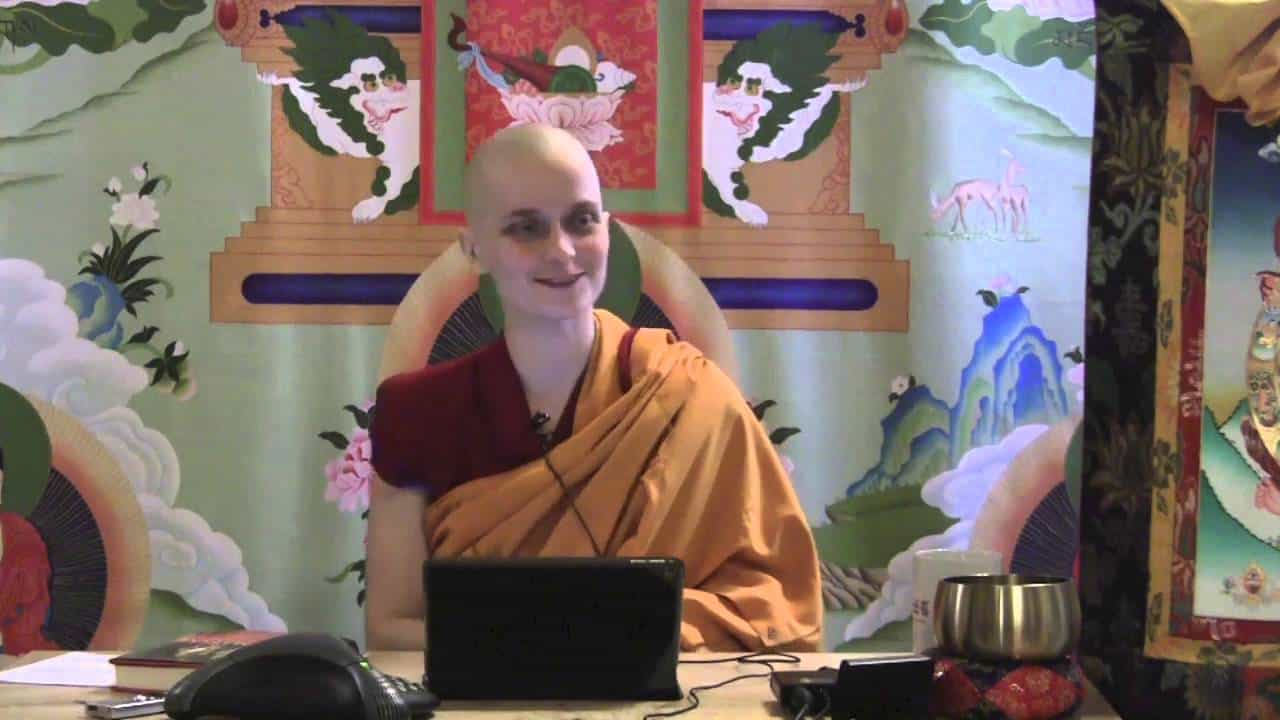Wisdom you can taste

This article was published in November 2015 on Facebook in Joy of Living Magazine. To see the full magazine article go to Joy of Living (December 2015).
There’s a well-known Buddhist parable about a man who slips and falls off the edge of a cliff. As he’s falling, he grabs a branch of a nearby tree and holds on for dear life. He knows there are monsters below that are going to eat him, and he can’t get back up the cliff. Then he sees a strawberry growing on a bush above him. The strawberry is very beautiful. He remembers what strawberries taste like and imagines how delicious this one would taste. So he picks, and eats, the strawberry.

How can mindfulness about eating a strawberry help us when we’re hanging on to our precious human life? (Photo by John Spooner)
I have heard this story used to explain what it means to be mindful of the present moment, since the man is completely focused on eating the strawberry regardless of his dire situation. I have sometimes wondered, though, how mindfulness about eating a strawberry can help us when we’re hanging on to our precious human life? My teachers said this story is about the foolishness of sentient beings who get distracted by samsaric pleasure, instead of doing something of spiritual benefit that will help them avoid the suffering of many rebirths. When we think of the story that way, we don’t want to reach out for the strawberry!
Being mindfully aware that you’re eating a strawberry is certainly better than gobbling it down without thinking; or getting angry that your brother never shared strawberries with you; or reminiscing about strawberries you once ate in France. However, Buddhist meditation is much more than just paying attention to what we are doing in the present moment. It is concerned with understanding the nature of the mind. How does the mind work? What are virtuous and non-virtuous mental states? Which mental factors do we want to subdue because they are antithetical to spiritual progress, and which ones do we want to cultivate because they help us along the path towards awakening? The Buddha gave a wealth of teachings about impermanence, the unsatisfactory nature of cyclic existence, selflessness, emptiness and bodhicitta. He did not teach being attached to the present moment because it’s so wonderful!
How can we eat mindfully in a way that helps us create the causes for awakening? For a start, look at the whole variety of things we could be doing with our minds while we’re eating. Let’s say you’re eating a strawberry and thinking, “Oh, it’s so delicious. Yum, yum, yum. Sweet, delicious strawberry.” And then the strawberry is finished. All that you thought about, all that you were focused on, was the taste of the strawberry. Is this a mind that’s going to lead to awakening? No, a neutral state of mind like this will not lead us to liberation.
All Buddhist traditions do a food offering before meals, which helps us to generate a virtuous state of mind while eating. Especially when I eat something delicious, I think either of the prison inmates to whom I write or of the bodhisattvas and buddhas, and I offer the delicious taste of the food to them. I’m taking delight in being generous, and it takes me out of being focused on just my own happiness. I’m cultivating the awareness that there are a lot of other beings in this world, and that I want to create good relationships with them. Eating in this way reduces my self-centeredness and helps me to cultivate love and compassion for others.
Sometimes I focus on the impermanence of the food, which helps me to counteract attachment. Once I’ve put the strawberry into my mouth and start chewing, it no longer looks appealing. Would you want to eat a strawberry that I’ve chewed and spit out? Then the strawberry gets digested and comes out the other end as poop. I can generalize this to all samsaric pleasures, which are impermanent and don’t last. Thinking like this isn’t depressing, it’s realistic. Instead of building up unrealistic expectations that cannot be fulfilled, we develop an awareness of the disadvantages of samsara. This strengthens our determination to be liberated from samsara, which spurs us to understand the nature of reality.
Another way to eat is to look at what we’re eating, and ask, “Why do I call this a strawberry? What makes this a strawberry?” At Sravasti Abbey, where I live, we recite the five contemplations from the Chinese Buddhist tradition as part of our food offering prayers. The first contemplation is, “I contemplate all the causes and conditions, and the kindnesses of others, by which I have received this food.” We could spend an hour or two meditating on this, and we’d never get to have lunch!
Whenever we eat, we can think of all the causes and conditions by which we’ve received the food. In terms of physical causes, there are the seeds, the ground, sunshine, water and so on. Those are the substantial causes, which actually turn into the result, which is the food. Then there are the co-operative conditions, such as the people who help cultivate the crops and who harvested, packaged and transported them. This connects us to the kindness of sentient beings, and to how we receive everything we have through our dependence upon them. Reflecting in this way is part of the method side of the path, which helps us to generate bodhicitta—the wish to become a fully awakened buddha, in order to repay the kindness of all sentient beings.
On the wisdom side, we investigate how things are produced by causes and conditions and therefore do not exist inherently. They do not have their own essence, and exist only because their causes existed. The mere fact that the existence of things depends on other things that came before them, shows that they cannot be independent. They can’t possibly have their own inherent essence. In just this one line of the food offering, we have both the method and wisdom sides of the Buddhist path.
So we can eat a strawberry mindfully in many different ways. We can use our minds in ways that promote progress on the spiritual path, instead of eating just to enjoy something that disappears in a moment. Our lives are far too short and precious for us to spend them in that way.
Venerable Thubten Chodron
Venerable Chodron emphasizes the practical application of Buddha’s teachings in our daily lives and is especially skilled at explaining them in ways easily understood and practiced by Westerners. She is well known for her warm, humorous, and lucid teachings. She was ordained as a Buddhist nun in 1977 by Kyabje Ling Rinpoche in Dharamsala, India, and in 1986 she received bhikshuni (full) ordination in Taiwan. Read her full bio.


